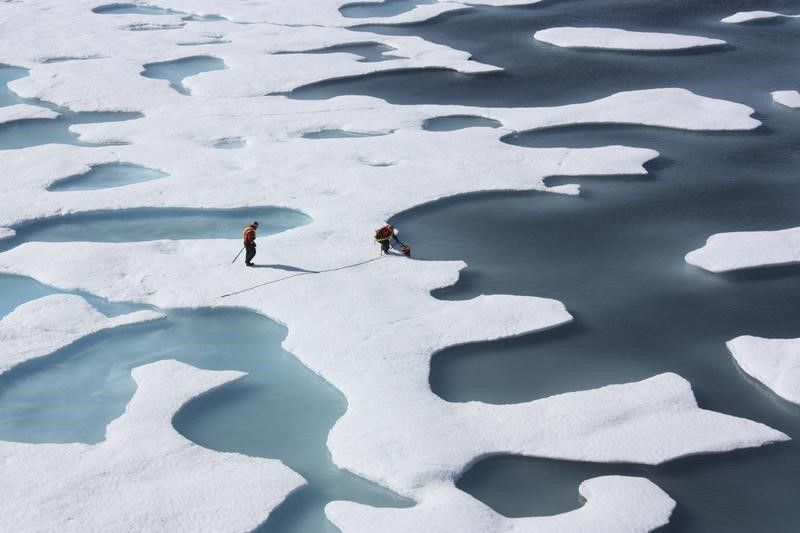Deep ocean currents are slowing in the Antarctic – what does that mean?
Ice in the Arctic and the Antarctic is melting quickly because of climate change.

A few minutes every morning is all you need.
Stay up to date on the world's Headlines and Human Stories. It's fun, it's factual, it's fluff-free.
Ice in the Arctic and the Antarctic is melting quickly because of climate change – we’ve been hearing this for years now. But did you know that this melting ice also has an effect on the ocean currents below it?
In Antarctica, an important global deep ocean current, known as the Southern Ocean overturning circulation, is slowing down because of melting ice there. A new study shows that it’s slowed down a whopping 30% since the 90s. This shift could affect Earth’s climate patterns and sea levels because the current influences a lot of things like rainfall and warming patterns.
“Changes in the overturning circulation are a big deal,” explains the study’s co-author, Dr. Steve Rintoul, oceanographer and member of the Australian Commonwealth Scientific and Industrial Research Organisation (CSIRO).“It’s something that is a concern because it touches on so many aspects of the Earth, including climate, sea level and marine life.”
How does the melting ice affect the currents, though?
These currents, aka the Antarctic bottom waters, are pushed by dense, cold water that comes off the Antarctic continental shelf, which sinks at least 3,000 meters (10,000 feet). That water then moves north into the Pacific and eastern Indian oceans, charging currents up there, which circulate and contribute nutrients and oxygen to 40% of the world's deep oceans.
But now, the temperatures are all off, messing with this system. Now, more and more less-dense fresh water is flowing into the ocean as the ice melts, slowing down this circulation of cold water out of these oceans.
"The thing about the oceans is that all of the marine life that we have at the surface, when it dies off, it sinks to the bottom of the ocean, so there's a lot of nutrient-rich water in the ocean abyss," said Matthew England, a professor of ocean and climate dynamics and a contributor to the research. "If we slow down the overturning circulation that brings that very bottom water back up to the surface, we cut off a way that nutrients get back to the surface to regenerate marine life."
The scientists had some bad news – this fresh water is likely to keep flowing in and disrupting these currents, which means they could eventually collapse.
"If the oceans had lungs, this would be one of them," said England.




Comments ()